Ukraine: How the British Left has been split by Russia's proxy war in the East
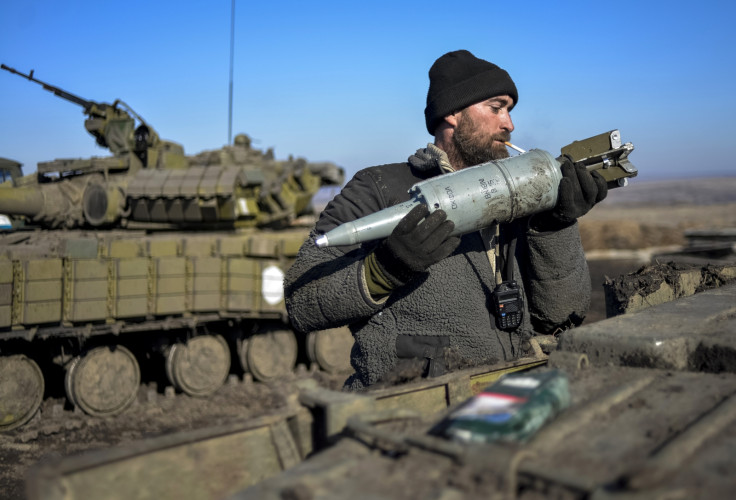
The left has split again. This time over the Ukraine crisis, where a bitter war between the Kiev government's forces and Russian-backed separatists in the country's east has left thousands of innocent people dead and heightened Moscow-Nato tensions to levels not seen since the Cold War.
Jamie Milne, a councillor in the London borough of Lewisham, set up the Labour Friends of Ukraine group within his party, to create a forum for raising the profile of the crisis in Westminster. It is already attracting support from Labour MPs and MEPs.
"When we say Labour friends of Ukraine, we mean friends of the current Ukraine government which is Europe facing, so we're not Labour friends of the People's Republic of Donetsk or anything," Milne told IBTimes UK.
While the centre-left views the Ukraine crisis as a product of the naked military aggression of an expansionist Russia under the authoritarian President Vladimir Putin, the far-left diagnosis of causation is two decades of US-driven western imperialism under the guise of Nato enlargement.
Nato has expanded eastwards in Europe since the fall of the Berlin Wall in 1989 and the subsequent collapse of the Soviet Union, signing up states that formerly fell within the Kremlin's sphere of influence, such as Poland, the Czech Republic and Estonia – is provoking a paranoid Kremlin into defending itself and its interests.
And the Ukraine crisis is the latest explosion of Nato's aggressive expansionism, so the far-left argue, because of western attempts to influence Kiev both before and after the fall of the Yanukovych regime in the early months of 2014 following weeks of pro-west protests.
"From the perspective of Russia, Nato is encroaching closer and closer to its borders," Chris Nineham of the Stop the War Coalition told IBTimes UK ahead of its March 19 public meeting titled "Nato and the Crisis in Ukraine".
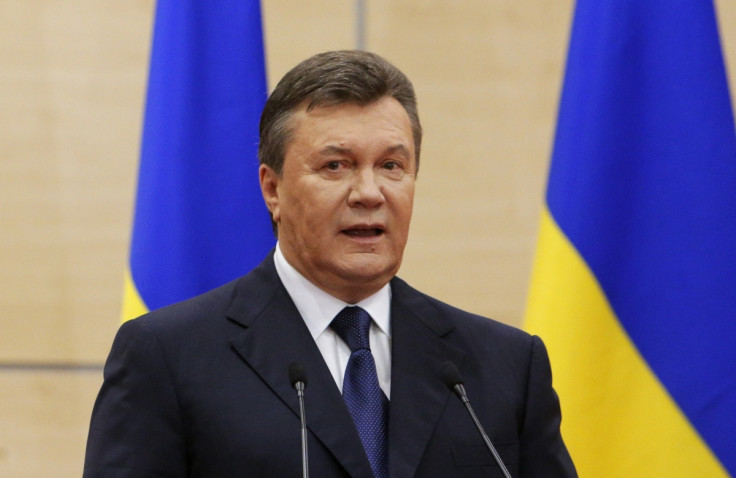
The position of the far-left on the Ukraine crisis can be boiled down to three central viewpoints. Firstly, Yanukovych was democratically elected and therefore his ousting was a "coup", backed by the West and carried out by fascists.
Secondly, as a result of the "coup" the Kiev government and forces fighting for it are under a significant influence from fascists, ultra-nationalists and neo-Nazis. To some, the Kiev government is a "fascist junta".
Thirdly, the Russian military intervention in eastern Ukraine is a consequence of Nato expansionism. Nato wants war with Russia and so is provoking it by enlarging its alliance in eastern and central Europe, to which the Kremlin is merely acting defensively by intervening in Ukraine and stopping it becoming a vassal state of the West right on its border.
What is more, Nato is flaming the tensions by sending support to Kiev, in the form of army training and non-lethal arms, and bolstering its forces in the Baltic states.
But those on the centre-left counter these ideas, fuelled and promoted by Russian-funded propaganda outlets, most notably the Russia Today television channel, which has found favour with the far-left by tapping in to their concerns about and criticisms of western policy.
Yanukovych was ousted after weeks of protests on the streets of Kiev, by and large by liberal pro-western groups, who were angry that he eschewed closer ties with the EU in favour of joining the Kremlin-led Eurasian Economic Union.
Yanukovych fled Kiev when violent clashes between protestors and police, who opened fire on the crowds, left dozens dead. Ukrainian MPs regained access to the national parliament, which had been closed off. They then voted Yanukovych out and scheduled fresh elections while an interim government took over, a wholly democratic process, not a coup.
While there are elements of the far-right who took part in the Euromaidan protests, as they were called after the area in central Kiev where they took place, these were a small minority of demonstrators. And in the May elections, support for the far-right fell sharply. The two main far-right parties – Svoboda and Right Sector – failed to win any seats because they could not get over the 5% vote threshold. The Kiev government is not a fascist junta.
There are ultra-nationalist volunteer militias fighting against Russian-backed separatists in eastern Ukraine. But these are a small minority of all the Kiev forces fighting. Fascists are not running the military operation against the separatists.
However, the Ukrainian government may come to regret these uncomfortable, if convenient, temporary alliances with ultra-nationalist militias when the fighting stops, especially if more allegations of war crimes perpetrated by them surface from groups like Amnesty International.
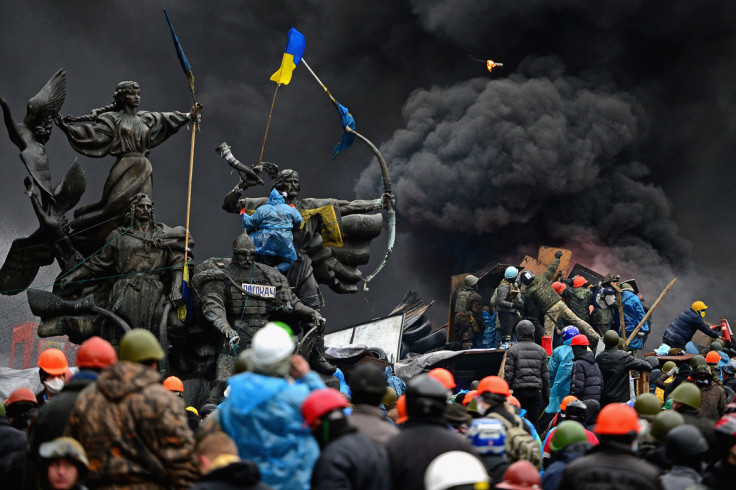
And on the charge of Nato enlargement, the centre-left hits back by pointing out that this has been the voluntary accession of sovereign, democratic states and that it is not up to Russia to decide who joins the alliance or not. Moreover, Russia breached Ukrainian sovereignty when it annexed Crimea – an area it still controls – with military force, whereas the west used diplomacy to exert its influence on the direction of Kiev. And Nato has readied its forces in the Baltics as a show of support for those states worried that Russia may be tempted to 'do another Crimea' in their territories, as well as to beat its chest at the Kremlin to warn it off.
Behind the scenes, western diplomats and officials were indeed working with Ukrainian politicians in the negotiations to appoint an interim government, in the hope that the temporary administration would be pro-West and stable enough to steer the country through the bumpy road ahead. There were promises of billions of dollars' worth of emergency loans to help Kiev through the worst.
The behind-the-scenes machinations were revealed when an embarrassing recording of a call between senior US State Department official Victoria Nuland and US Ambassador to Ukraine Geoffrey Pyatt was leaked, thought by the Russian intelligence services, and gave an insight into these diplomatic efforts. Nuland, out of frustration with the sluggishness of the European reaction to events, is heard to say "f**k the EU". But the far-left don't see this as diplomacy.
"Diplomacy's not what happened. The State Department was involved in behind the scenes manoeuvring and manipulation in order to shape the government," said Nineham of the Stop the War Coalition, whose support base includes George Galloway's Respect party, the Socialist Workers Party and a number of trade unions.
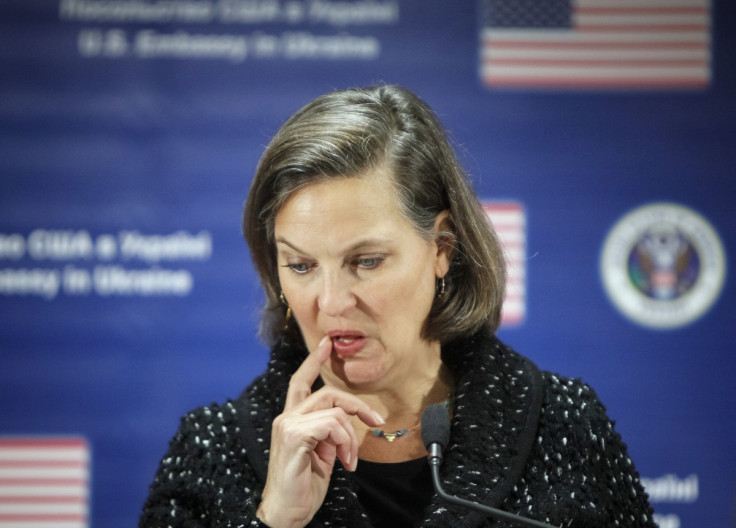
But what is diplomacy if not manoeuvring and manipulating? And what is the alternative? The Kremlin has already tried, through the Eurasian Economic Union, to use diplomacy to bring Ukraine back under its wing, before it resorted to its military.
"It's a certain type of diplomacy. It's an aggressive, backdoor, imperialist kind of diplomacy. It's got nothing to do with trying to resolve tensions with Russia in an honest and open way," Nineham said.
"That kind of diplomacy, as any child would realise, is going to increase the tension between the US, western powers and Russia.
"If you don't want that, if you don't want to generate fear and anxiety in Moscow, then one thing you shouldn't be doing is be behind the scenes deciding and determining who actually governs in Ukraine. I mean it's obvious. You can't have it both ways."
There is also the question of why any states, be they western or otherwise, should tip-toe around Russian sensitivities and Putin's 'Greater Russia' narrative.
"I have been a long time critic of Nato excesses. But I also recognise its key role against Putin's and the Middle East forces of barbarism," wrote the Labour MP Paul Flynn after the Nato summit in Wales in September 2014.
While the Stop the War Coalition uses public meetings, grass-roots campaigning and celebrity endorsers to spread its message on the Ukraine crisis, its centre-left opponents now want to be seen to acting as a counter-balance.
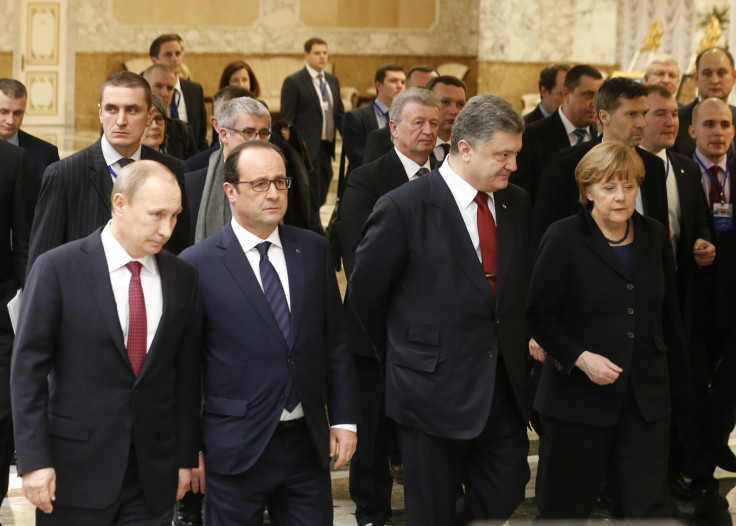
Jamie Milne, the driving force behind the Labour Friends of Ukraine group, explained: "I set it up out of a sense of frustration with the lack of interest there was generally. Of course it's in the news and everything, but [...] there has been a couple of debates in the House of Commons on Ukraine recently and the benches on both sides were scarcely one fifth full.
"And given that I think it's the biggest threat to European security in several decades, I'm just baffled by the lack of interest in it."
There is also a personal factor motivating Milne: not only does he have Ukrainian heritage, his wife is Ukrainian too. And her family, who live around two hours south of Kiev, are in a state of "bewilderment".
"Because they did consider Russia to be a brother country ," Milne said. " They now consider Putin's Russia to be an enemy country and wanting the worst for them, wanting to colonise them."
Though the grassroots may be split over Ukraine, the Labour party's senior team in Westminster knows where it stands. It assigns blame from the crisis with Putin, not Nato, and is urging the Russia to pull all of its forces out of Ukraine. Where it counts, in the halls of power, the far-left has not won the argument.
© Copyright IBTimes 2025. All rights reserved.






















